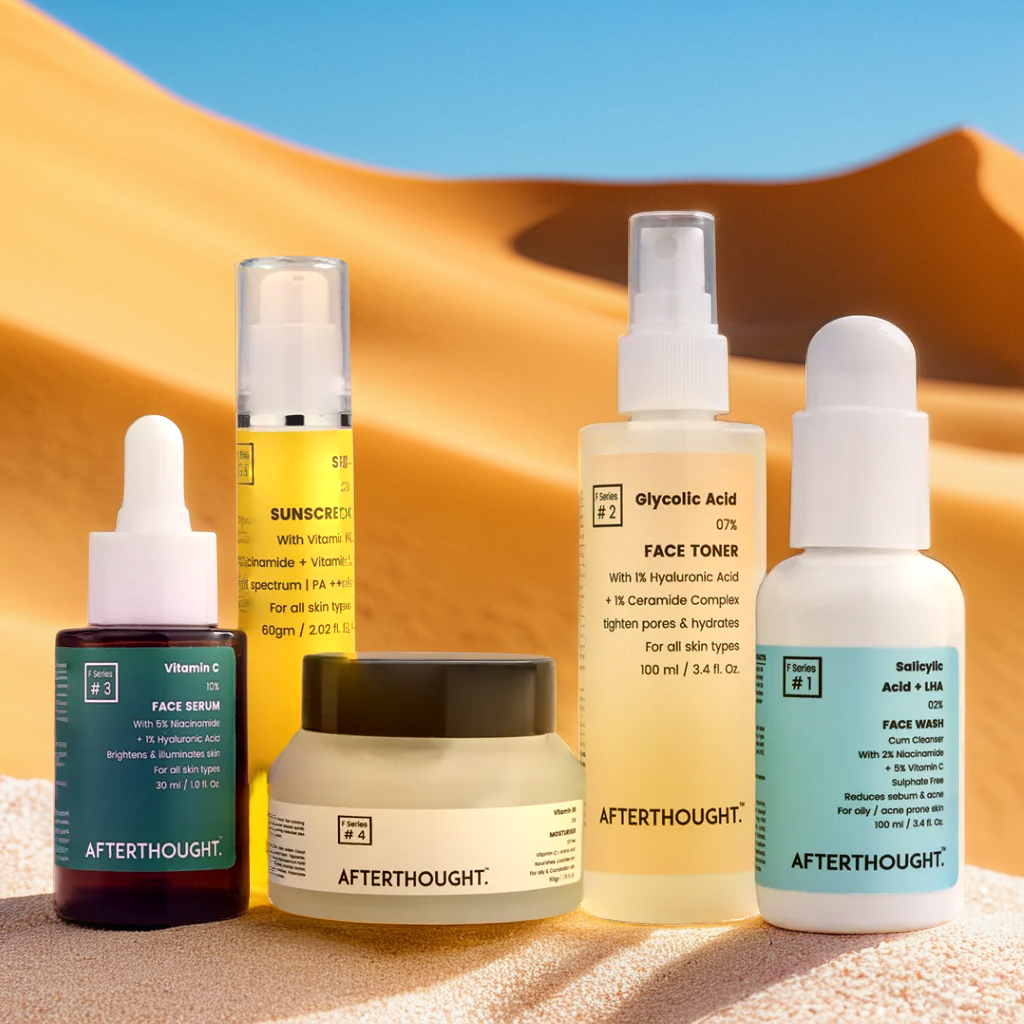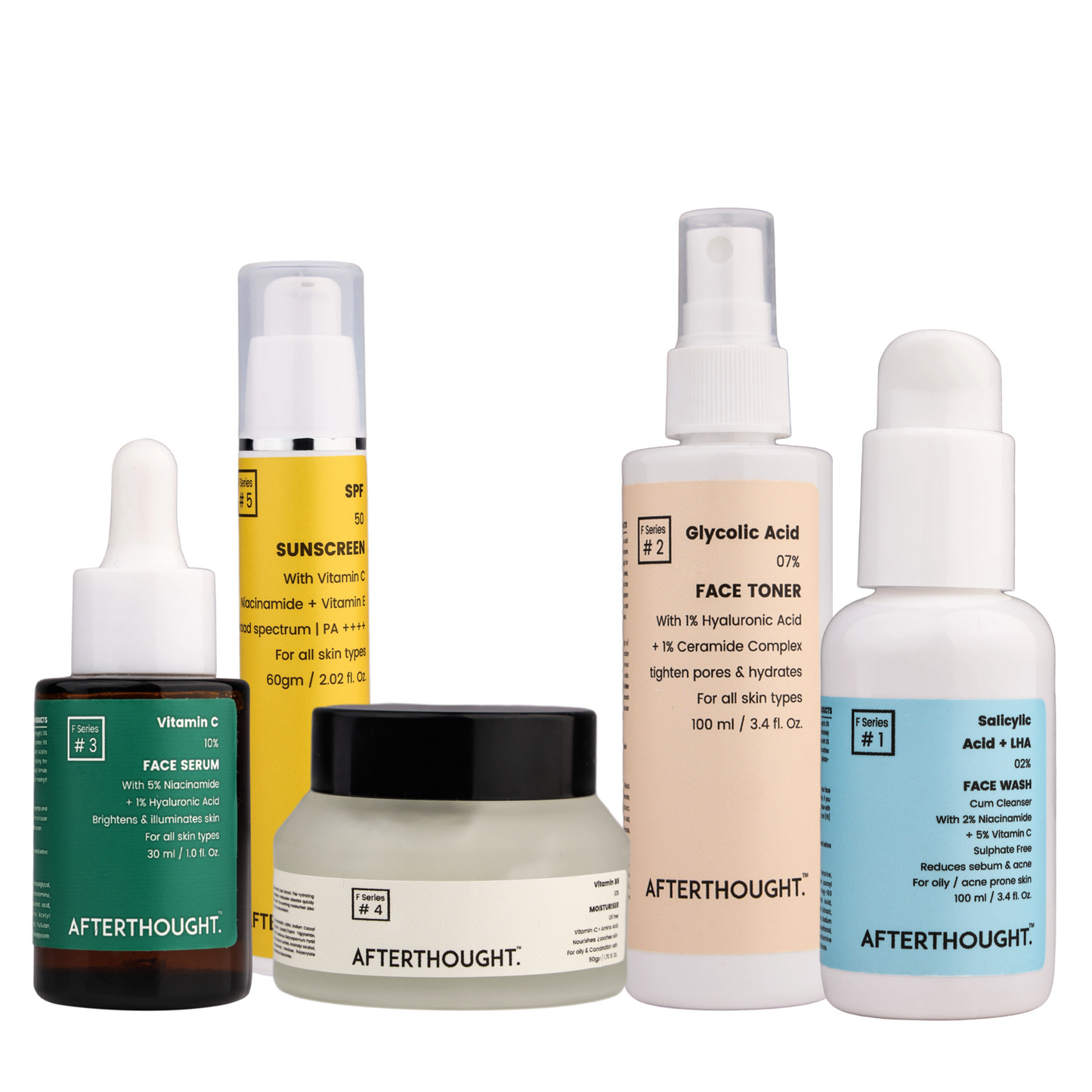Which Facial Is Good For Sensitive Skin?
Sensitive skin is characterized by heightened reactions to various factors such as environmental changes, stress, and certain skincare products. Common symptoms include redness, itching, dryness, and a burning sensation.
To manage sensitive skin, it's crucial to use gentle products and treatments that soothe and protect the skin barrier. Welcome to Afterthought.
Key Ingredients to Look For
When selecting facial treatments for sensitive skin, focus on products with calming and nourishing ingredients. Here are some of the top ingredients to consider:
- Aloe Vera: Known for its soothing properties, aloe vera helps reduce inflammation and provides a cooling effect.
- Chamomile: This ingredient has anti-inflammatory and antioxidant properties, making it ideal for calming irritated skin.
- Calendula: Extracted from marigold flowers, calendula is known for its healing and soothing properties.
- Oatmeal: Colloidal oatmeal is excellent for reducing redness and itching, providing a protective barrier for the skin.
- Hyaluronic Acid: This hydrating ingredient helps maintain moisture levels without causing irritation.
- Green Tea Extract: Rich in antioxidants, green tea extract helps calm the skin and reduce redness.
Recommended Facial Treatments for Sensitive Skin
1. Gentle Cleansing
Start your facial with a gentle cleanser that removes impurities without stripping the skin of its natural oils. Opt for sulfate-free cleansers with hydrating ingredients like glycerin or hyaluronic acid.
2. Steam Treatment
A mild steam treatment can help open up pores and enhance the absorption of subsequent products. Keep the steam session short and avoid using hot water to prevent irritation.
3. Exfoliation
Exfoliation should be done sparingly for sensitive skin. Choose a mild exfoliant with natural enzymes or fine particles. Avoid harsh scrubs or chemical exfoliants that can cause irritation.
4. Soothing Mask
A soothing mask can provide immediate relief to sensitive skin. Look for masks containing aloe vera, chamomile, or oatmeal. These ingredients help calm inflammation and hydrate the skin.
5. Hydrating Serum
Apply a hydrating serum with ingredients like hyaluronic acid or glycerin. These serums help retain moisture and improve the skin's barrier function, reducing sensitivity.
6. Moisturizer
Use a fragrance-free, hypoallergenic moisturizer to lock in hydration and protect the skin. Creams with ceramides or squalane are particularly beneficial for sensitive skin.
7. Sun Protection
Sensitive skin is more susceptible to UV damage, so it's essential to use a broad-spectrum sunscreen with SPF 30 or higher. Choose a mineral-based sunscreen with zinc oxide or titanium dioxide to minimize irritation.
Additional Tips for Managing Sensitive Skin
- Patch Test: Always perform a patch test before trying new products to check for adverse reactions.
- Simplify Your Routine: Stick to a minimalist skincare routine with gentle products to avoid overwhelming your skin.
- Avoid Irritants: Stay away from products with alcohol, fragrances, and harsh chemicals.
- Stay Hydrated: Drink plenty of water to keep your skin hydrated from within.
- Use Lukewarm Water: Hot water can strip the skin of its natural oils, so use lukewarm water for cleansing and rinsing.
Conclusion
Caring for sensitive skin requires patience and careful selection of products and treatments. By focusing on gentle, soothing ingredients and following a tailored facial routine, you can achieve a healthy, radiant complexion without irritation.
Remember, the key to managing sensitive skin is consistency and attentiveness to how your skin responds to different products and treatments.
Also Read: Which Sunscreen Is Best For Sensitive Skin?



